The Difference Between Alzheimer’s and Dementia

While they’re often used interchangeably, Alzheimer’s disease and Dementia are two different things. Dementia is a generic term for symptoms that impact memory, communication and cognitive function. Alzheimer’s, meanwhile, is a progressive brain disease that causes dementia. Let’s take a closer look at the difference between Alzheimer’s and Dementia and how to address them.
Dementia
Many people mistakenly believe Dementia is a memory loss disease. In reality, it’s a syndrome or set of symptoms, that can be the result of several diseases, the most common one disease being Alzheimer’s. Here are a few other causes of dementia:
- Vascular Dementia: Caused by a blockage of blood flow to the brain
- Frontotemporal Dementia: Defined as a loss of function by the frontal and temporal lobes of the brain (near the forehead)
- Parkinson’s disease Dementia: Occurs in patients with Parkinson’s (a progressive disease in the nervous system)
- Lewy body Dementia: Caused by Lewy bodies (or protein deposits) in the nerve cells
- Mixed Dementia: Term for someone with multiple types of Dementia
According to the World Health Organization, over 55 million adults across the globe suffer from some form of Dementia. While each type has its own unique symptoms, they share many similarities.
Symptoms of Dementia
 Dementia can be hard to recognize in the early stages, as symptoms are typically mild. Here are a few things to look out for:
Dementia can be hard to recognize in the early stages, as symptoms are typically mild. Here are a few things to look out for:
- Getting lost
- Forgetting appointments or obligations
- Losing track of time
- Increased confusion
- Mood changes
As Dementia progresses, patients may start to forget people, fail to fulfill responsibilities and struggle to take care of themselves.
Risk Factors for Dementia
Although it can affect anyone, some people are more likely to develop Dementia than others. Risk factors include the following:
- Age: Adults aged 65 and older are more likely to develop Dementia. However, it can be seen in people as young as 30.
- Genetics: People with a family history of Dementia have a higher chance of developing the syndrome.
- Head trauma: Sustaining a head injury may increase your chance of getting Dementia.
- Poor diet and exercise: Unhealthy diet and exercise habits have been linked to Dementia.
- Other health conditions: Parkinson’s disease, Huntington’s disease and depression may lead to Dementia in the future.
While these factors can let you know whether you’re more at risk of having Dementia, they’re not a guarantee you’ll develop the syndrome. Similarly, having no risk factors doesn’t mean you won’t get it. That’s why it’s important to look out for symptoms, especially in aging loved ones.
Treatments for Dementia
There’s no definitive way to prevent Dementia entirely, and — once it begins — the effects are usually irreversible. However, Dementia may be treatable depending on the type. For example, Vascular Dementia is treated by minimizing damage to brain blood vessels, while Parkinson’s disease Dementia treatments focus on managing Parkinson’s.
Most treatments involve cholinesterase inhibitors, a class of medication designed to improve memory and judgment. Staying physically and mentally stimulated through daily exercises can also help.
Alzheimer’s Disease
Alzheimer’s is a specific disease that causes brain cells to die, leading to cognitive and memory impairments. According to the Alzheimer’s Association, over six million people suffer from the disease in the United States alone. Unlike other forms of Dementia, Alzheimer’s has no known cause. However, there are symptoms that can indicate its presence.
Symptoms of Alzheimer’s Disease
 Alzheimer’s disease shares many symptoms with other Dementia types. Effects may include:
Alzheimer’s disease shares many symptoms with other Dementia types. Effects may include:
- Increased forgetfulness
- Confusion and disorientation
- Poor judgment
- Difficulty speaking
- Psychological symptoms (such as mood changes or withdrawal)
Symptoms usually get more severe as the disease progresses — for example, forgetting appointments can escalate to forgetting people’s names and faces.
Risk Factors for Alzheimer’s Disease
You can’t be certain whether someone will have Alzheimer’s in the future. However, you can look out for these key risk factors:
- Age: Alzheimer’s most commonly affects people above the age of 65.
- Genetics: Having family members with Alzheimer’s is a major risk factor.
- Head trauma: Like with Dementia, experiencing head trauma can increase your risk.
- High cholesterol: High cholesterol and blood pressure have been linked to Alzheimer’s.
- Down syndrome: People with Down syndrome are more likely to get Alzheimer’s in the future.
Now that you better understand the symptoms and risks involved, you might be wondering: How is Alzheimer’s disease treated?
Treatments for Alzheimer’s Disease
Unfortunately, there’s no cure available for Alzheimer’s. Thus, treatments focus on managing symptoms (which involves delaying or reducing the severity of effects). Many people with Alzheimer’s disease take cholinesterase inhibitors to improve cognitive function and antipsychotics to reduce behavioral changes. It’s also advisable to practice memory exercises on a daily basis which is one of the necessary activities to do with Alzheimer’s patients.
Although treatments can help keep symptoms in control, they can’t be delayed forever. Over time, patients with Alzheimer’s typically lose the ability to take care of themselves — they may be unable to bathe, remember people or walk safely. To help ensure an Alzheimer’s patient remains safe and healthy, many family members rely on memory care homes.
Cedar Creek Memory Care for Dementia and Alzheimer’s Patients
A memory care home is a facility designed for adults struggling with Alzheimer’s disease or related forms of Dementia. Typically, homes offer safe, easily navigable environments, nutritious meals, memory stimulation activities and round-the-clock caregivers. The ultimate goal is to improve the quality of life for people experiencing memory loss while meeting growing health needs.
At Cedar Creek Memory Care, we do everything we can to create a warm, positive atmosphere for our residents. Not only do we have a team of experienced caregivers but we also maintain a small staff-to-resident ratio. This gives us the chance to connect with residents beyond their medical needs and provide a highly personalized level of care. If you’d like to learn more about our team, please contact us at (301) 384-4017 or visit us online!




